International Community Development Profile: Fatness Kikoti Family
In this series, families in the Reaching Children’s Potential (RCP) Demonstration Program in Tanzania explain how their participation improves their lives. Global Volunteers’ RCP Program engages short-term volunteers to help parents deliver essential services improving health, eradicating hunger, and enhancing cognition – with the goal of eliminating child stunting in the Ukwega Ward and throughout Tanzania. Through RCP, families obtain the nutrition, health care, knowledge, technology, and encouragement needed to combat stunting, and to ensure their children can realize their full potential. The RCP Program is a child-focused, parent-driven, family-centered, and community-led comprehensive effort. It begins with pregnancy, and continues through the 18th birthday, with a focus on the first 1,000 days of life. Read Fatness Kikoti’s interview about the RCP Program here. Her husband, Evaristo Myungile participated as well.
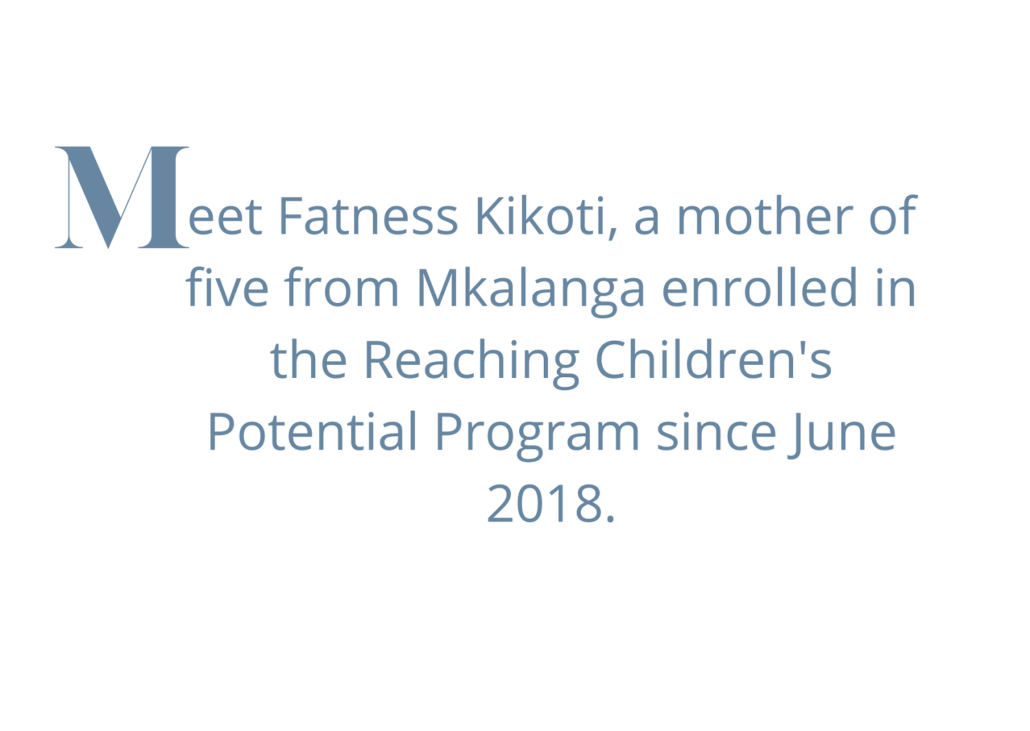
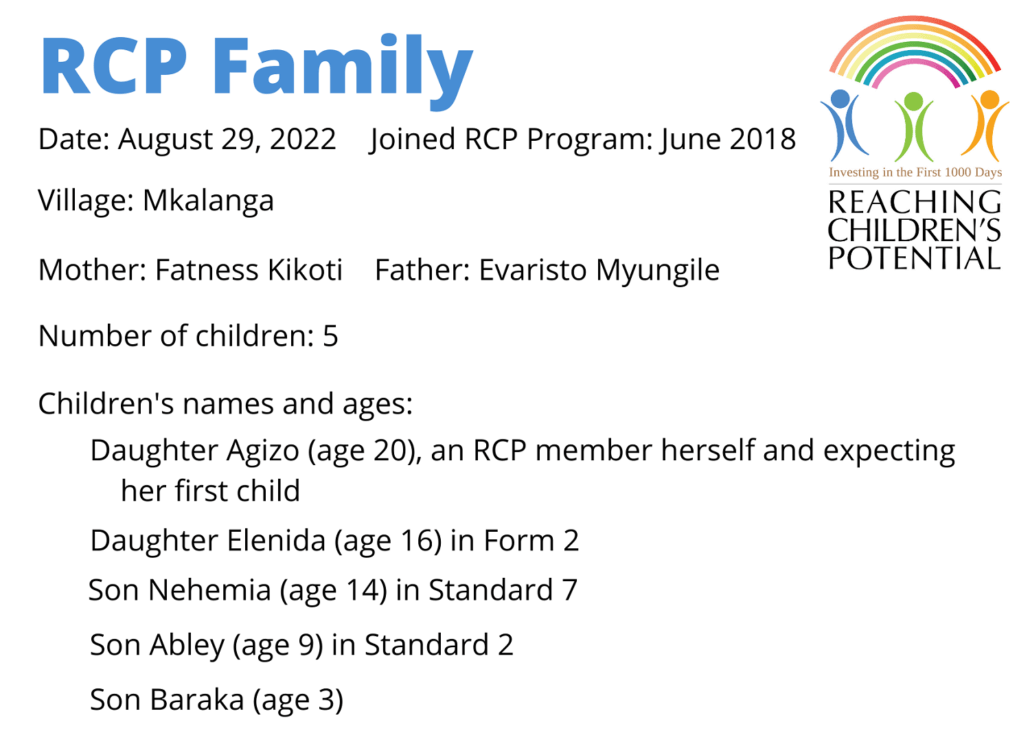
Fatness, we’re interested in your background and your daily life. Can you tell us about where you grew up and what a normal day is like for you?
Fatness: I was born and raised here in Mkalanga, but my husband is originally from Kimara. He was raised in Mkalanga. Here in Mkalanga there is fertile land and many areas for investment. My education level is Standard 7 and I acquired it at Mkalanga Primary School. My husband went up to secondary school. We support each other in everything.
We farm beans, corn, bananas, avocados, yams, potatoes, and cassava. We also keep animals. We have four goats, a pig who is currently expecting babies, and 15 chickens. Another source of income is the farm where we have planted trees to help us pay for our children’s education.
I usually wake up at 5:00 in the morning and attend Morning Prayer at church until 6:00 and then I continue with domestic activities. After that, I go to the field. I spend most of my time in the field. When I get time to relax, I like reading the Holy Bible and teaching my children good morals and how they should behave.
What can you tell us about your children? How did you choose their names?
Evaristo: Agizo likes tailoring and works in that now. Elenida always likes to help her mother with domestic activities like fetching water, cooking, and cleanliness. Nehemia and Abley like to help with my activities like when I feed animals. They like to observe and sometimes help me with that. Sometimes they like gardening.
We would like Nehemia to become a doctor and Elenida to become a nurse when they grow up. As for Abley, he always tells me that he wants to be a pastor when he grows up. So what my wife and I do is help them become who they want to be in the future. We hope that the program will continue to train us on how we can raise our children to their best and become better people in the future.
About their names, I traced them from the Holy Bible because we are Christians and that is why we decided to give our children names from the Bible. My children’s performance at school is great because most of the time they are in the top ten students in their classes.
Fatness: Abley enjoys doing business activities like selling avocados or pineapples when they are in season. He doesn’t need to be asked to do so — he just volunteers to help with this. He is a very charming and active child. When Abley is home, you will know because the house is filled with lots of games with his friends. He is also very organized. You often don’t need to instruct him on his duties.
Baraka likes playing games, especially driving cars around and playing soccer. He wants to become a professional soccer player when he grows up, representing his country.
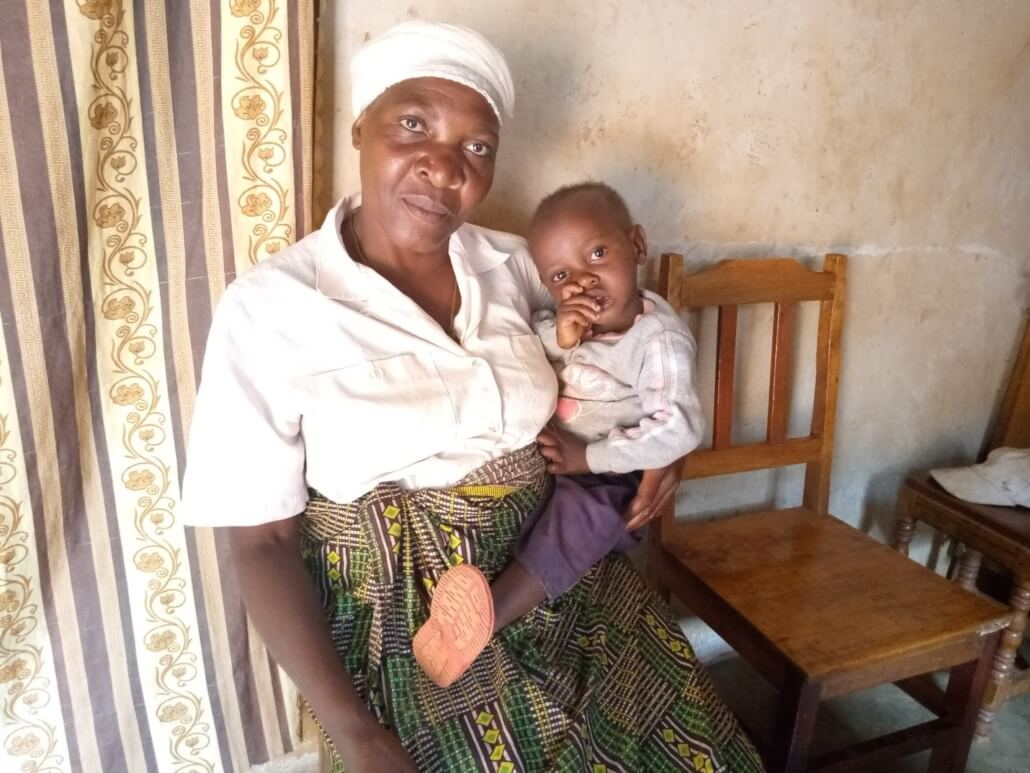
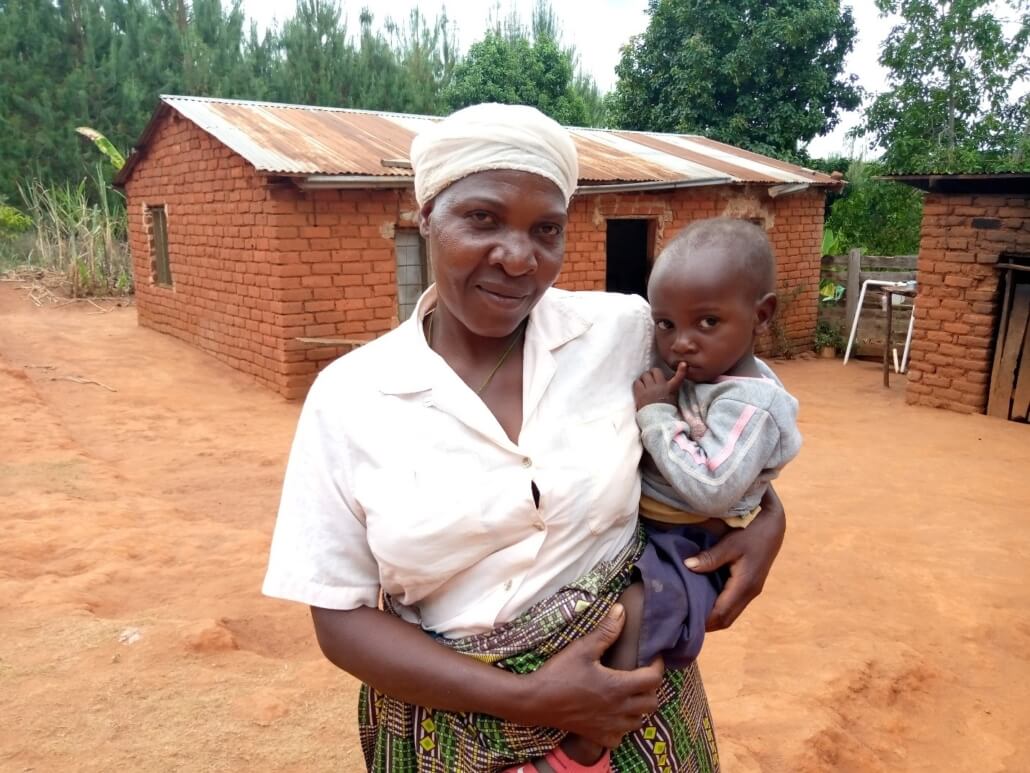
When you learned about hand-washing stations, what did you decide to do at home? How has the hand-washing station helped your family?
Fatness: We did not have any understanding about washing hands with soap and water until I attended a handwashing workshop at the RCP Center. We were not used to washing our hands often and sometimes we were coming from the farm or the bathroom and going directly to the kitchen to prepare food without washing our hands, which was totally unhealthy. But in the workshop, I learned why washing our hands with soap and water is important. So I shared the information with my husband and children and they were all receptive and we made strategies to change and adopt this habit. My husband and I insisted with our children that they needed to wash their hands as many times as they can, especially after coming home from school, after using the bathroom, and before and after eating. All my children adopted this behavior and they all know when they should wash their hands. This new practice impacted me and the whole family.
Evaristo: Ever since we started practicing handwashing, no one in our family has had stomach fever. Our children used to suffer from stomach fever or diarrhea, but not anymore. So handwashing with soap and water is a great practice for everyone.
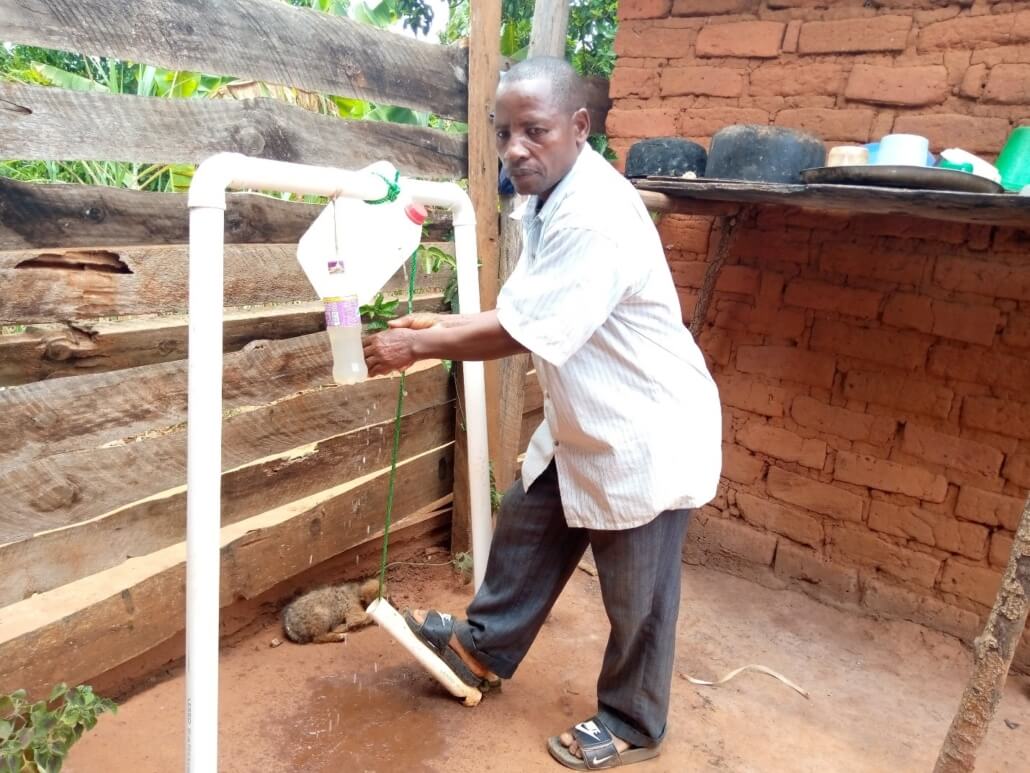
Have the Rise Against Hunger meals and fortified porridge been important for you and your children’s nutrition? What other foods does your family eat?
Fatness: When I was breastfeeding Baraka, the Rise Against Hunger meals were very helpful to me because I always produced enough breast milk for him. Baraka and I ate the meals once a day when they were provided to us. At first, Baraka didn’t eat the meals and wasn’t eating much in general. I realized I had not taken him to be dewormed for a long time, so then I took him to the Ipalamwa General Clinic to do this. That was when he was about 21 months old. When we came back home from that visit, I started giving him a variety of foods all the time and he started eating much better than before. Then, he really started liking the Rise Against Hunger meals. When cooking the meals, I add salt and oil. I always give him three meals a day and some fruits in between meals as well. Other foods that he eats are potatoes, cooked bananas, ugali, sardines, meat, beans, porridge with a mixture of wheat and corn, vegetables, and fruits, mostly avocados and banana. We also eat the same foods that he eats.
I grow vegetables here at home for our own consumption. I grow spinach and pumpkin. We also eat the pumpkin leaves as vegetables. We raise animals for the purpose of selling them and sometimes we also use them as a source of food for ourselves. The animals that I raise are a good source of income in my family.
The fortified porridge provided at school has had a positive impact on students since they are able to concentrate on their studies all day at school without having stress about where they will have a meal. Also, a student whose stomach is empty has difficulty concentrating and learning in school.
“Ever since we started practicing handwashing, no one in our family has had stomach fever. Our children used to suffer from stomach fever or diarrhea, but not anymore. So handwashing with soap and water is a great practice for everyone.”
– Evaristo Myungile, RCP father
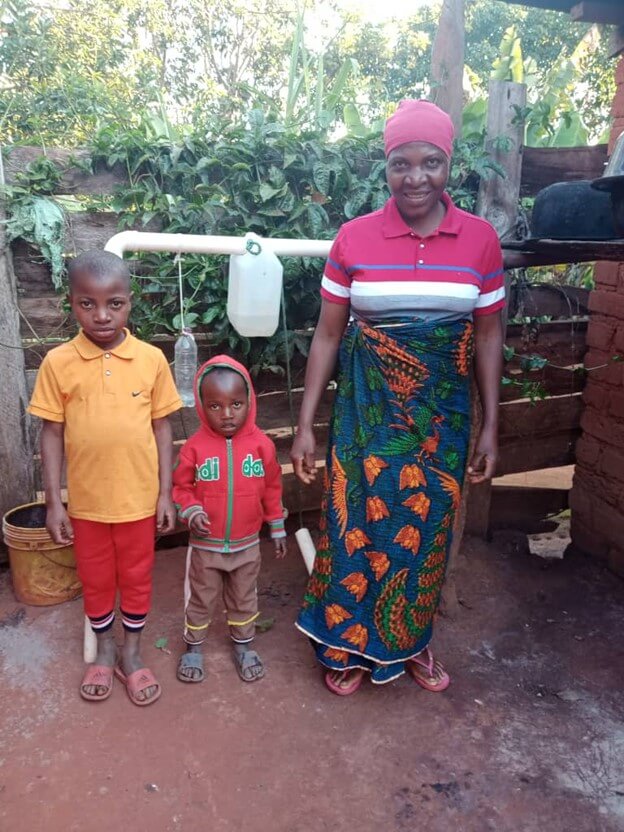
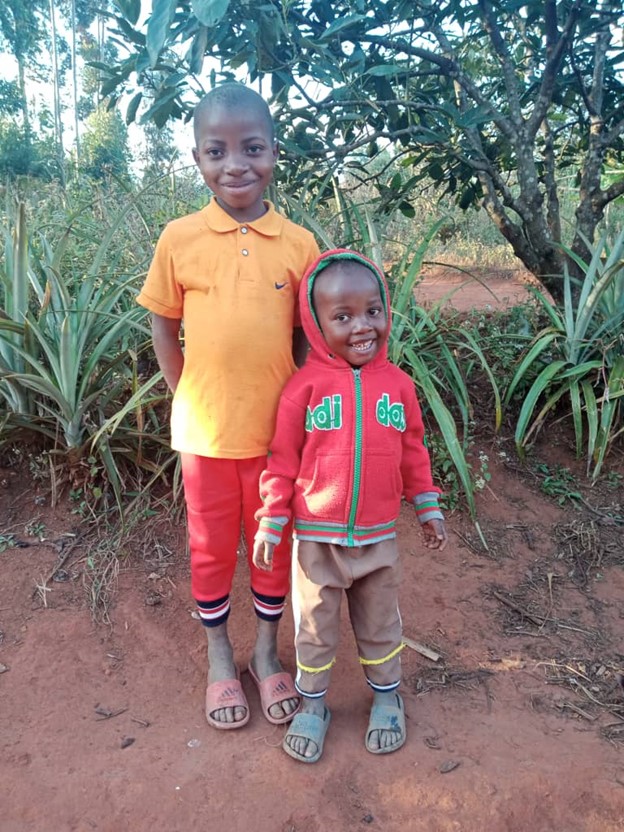
What are the personal changes you’ve made in your life since joining RCP that have resulted in better health for you and you children? What are you doing differently now?
Fatness: We have improved so much with washing our hands with soap and water because we were not doing it before. We maintain cleanliness all the time and I always stay near my children so that I can discover any unusual difference and help them at the earliest.
Evaristo: We have benefitted a lot from education on family planning methods. We were not aware of some ways of family planning, but now we are aware and we practice them. Also, my wife taught me how important vegetables are, so we have made a home garden to get vegetables every day.
If you have been using the clinic services in Ipalamwa, how are they different from medical services available before the clinic opened?
The services at the Ipalamwa General Clinic are great. We usually get good quality services because they are organized and professional. I also love the fact that they help immediately when there is an emergency. We are happy that we have this kind of health center.
“The fortified porridge provided at school has had a positive impact on students since they are able to concentrate on their studies all day at school without having stress about where they will have a meal. Also, a student whose stomach is empty has difficulty concentrating and learning in school.”
– Fatness Kikoti, RCP mom
What differences, if any, do you see in your children since you joined the RCP Program?
The differences which I have seen since I have been in the RCP Program is that repeated infection has become history to my family. We have been practicing hygiene using the hand-washing station and drinking boiled water. There is a huge difference between my older children, who I had before RCP, and my son, Baraka, who I delivered once I was in the program. The program helped me to have a safe delivery and Baraka’s cognition has developed earlier than his older siblings’ did. There is a difference in nutrition and health, also, because being in the program has helped me to access health services any time I need to with my family.
How has your family been doing in the last year? What aspects of the RCP Program have helped you in the last year?
My family is doing fine since we have not had any health complications. I have been practicing what I have been taught in the workshops and the education which I have received from caregivers during home visits. That has helped my family and me stay healthy. The RCP Program technologies, such as the handwashing station, have helped my family with hygiene issues. It made diarrhea become history in my family.
What are your family’s biggest challenges/struggles? How do you try to address them?
Evaristo: I have a health challenge because I’m suffering from high blood pressure. But it is solved now because I have access to free medicines from the Ipalamwa General Clinic. So this challenge has been solved because since I started taking the medicine, I feel stronger than before.
What are you most proud of in your family? What plans do you have for the future?
Evaristo: We feel very lucky to have these children and seeing them in good health is what gives us peace. Children are a blessing. In next few years, we want to focus more on animal keeping as we have already started. I hope all will be well in a few months to come.
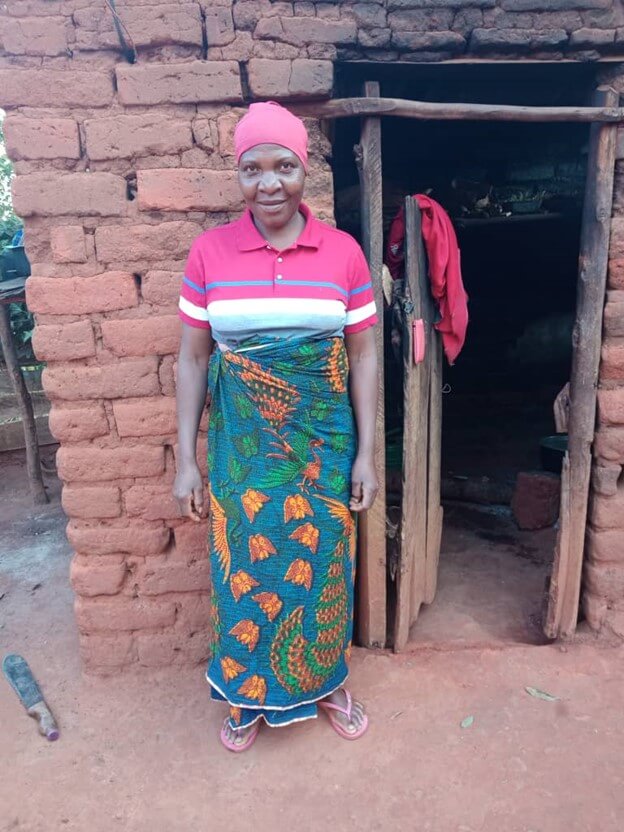
What are your visions for the future and what values from your ancestors and cultures are you trying to maintain?
Evaristo: Most of the culture which was applied before was nonsense because most of the people are no longer following them due to Christianity, which has spread. For example, before, when the rainy season came late, people went to their ancestors’ graves to give them offerings and ask for the rain to come, but this does not happen anymore. The cultural customs that are still maintained are paying a dowry and helping each other in the case of celebrations or funerals or any other events.
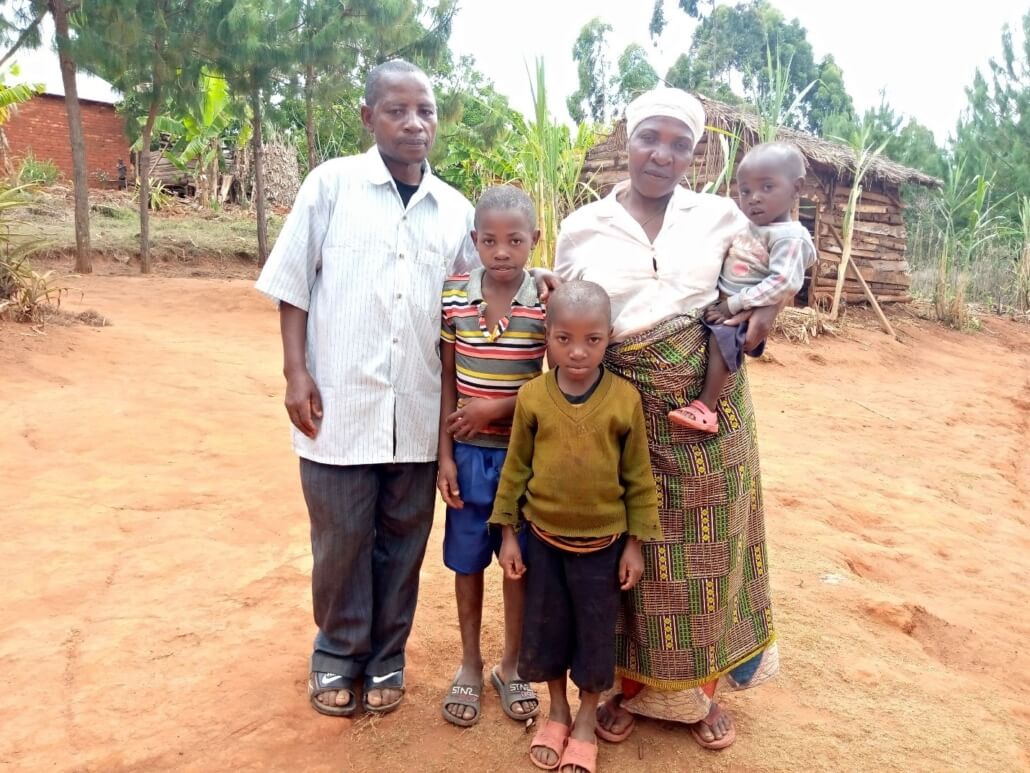
Do you celebrate birthdays?
No, but we usually make them aware of their birthdays and prepare a special meal. We also say a prayer and thank God for the gift of life.
What are your hopes and dreams for your youngest children?
My hopes for my children are that I can work very hard so that they can acquire quality education which will help them in the future. Also, although they have their wishes, as a mother, I personally really wish my son Baraka will become a doctor and Abley will become a teacher so that they can help to raise our standard of living.

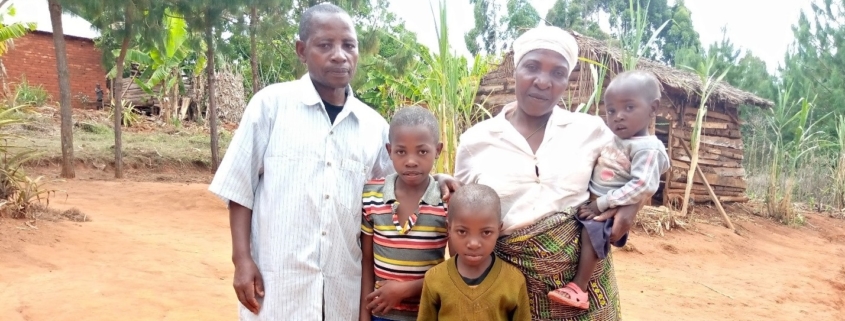


Leave a Reply
Want to join the discussion?Feel free to contribute!